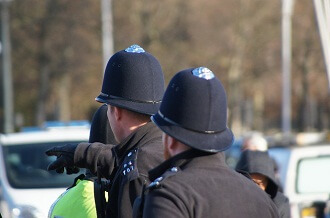Prosecution Levels Reach All-Time Low
Prosecution Levels Reach All-Time Low

Prosecution rates in England and Wales fell to a record low last year, whilst recorded crime rose to a 14-year high, according to new figures published by the Ministry of Justice.
The statistics show that 1.37m defendants were prosecuted in the year to September 2018 – marking a 4% decrease from the year before and constituting the lowest number of annual prosecutions since records began in 1970. The number of crimes recorded by police rose by 7% to 5.7m over the 12 month period, the highest annual total since 2004.
Prosecutions fell across most categories of crime – including violent crimes, sexual offences, and theft and drug offences. There was however a slight increase in prosecutions of offences involving possession of weapons. The total number of people dealt with by the criminal justice system in other ways, including via cautions and penalty notices, also dropped to the lowest number since records began, falling 5% from 2017 to 1.59m.
Nearly 1.2m offenders were convicted over the same period – a 3% decrease on the previous year – with the conviction rate increasing to 87% as prosecution numbers dropped.
Campaigners blame austerity for crime rise
With prosecutions at the lowest levels for nearly 50 years, some have criticised government ministers and austerity measures for causing harm to the justice system “at every turn.”
Victims’ rights campaigner Harry Fletcher maintained that the figures were “clearly linked to [government] cuts,” adding:
“It is sending a message to victims that they have become an irrelevance who will not get justice. The government has damaged the criminal justice system at every turn. Courts have been closed, police officer numbers cut and the probation service wrecked by semi-privatisation.”
Civitas think tank director David Green similarly attributed the trend to austerity measures, stating:
“The evidence shows the more likely you are to be caught and punished the less crime there will be. It has become obvious people are less likely to be caught and punished and therefore you will get more crime.”
The Ministry of Justice for its part attributed the rise in crimes to improved recording practice among police forces and a greater willingness amongst victims to report offences. The Office for National Statistics held that the uptick in recorded crimes was due in some areas to an overall increase in criminal activity.
“Shockingly low” arrest levels and police presence
The home affairs select committee meanwhile has also pointed to a genuine increase in crime, but has attributed this to flaws in the criminal justice system, citing “shockingly low” levels of arrests, charges and summonses for many offences.
Funding cuts have led over 200 courts across England and Wales to close since 2010 and contributed to what has been termed a “crisis” in the nation’s prisons, with understaffing leading to increased violence and disorder amongst inmates.
The police service has also been affected, with MPs warning last year that crimes were going without investigation due to a lack of officers on the beat. Austerity measures against the service have now been stopped however, with many forces hiring to replace over 20,000 roles previously cut due to a lack of funding. The Ministry of Justice for its part has denied that funding cuts or government policy have played a role in prosecution levels reaching an all-time low.
Instead, a spokesperson for the department noted: “Under this government the most serious offenders are more likely to go to prison, and for longer,” adding:
“Criminals are also being convicted at the highest rate for a decade, helping protect the public and keep communities safe.”
According to the government department’s figures, repeat offenders with at least 15 previous cautions or convictions accounted for 37% of convicted offenders last year.
Contact IBB’s criminal defence solicitors today
IBB Solicitors has one of the leading teams of defence solicitors in West London and the South East. If you are facing a serious criminal charge, call us now in complete confidence on 0330 999 4999 for immediate emergency representation. Alternatively please email criminaldefence@ibblaw.co.uk.
